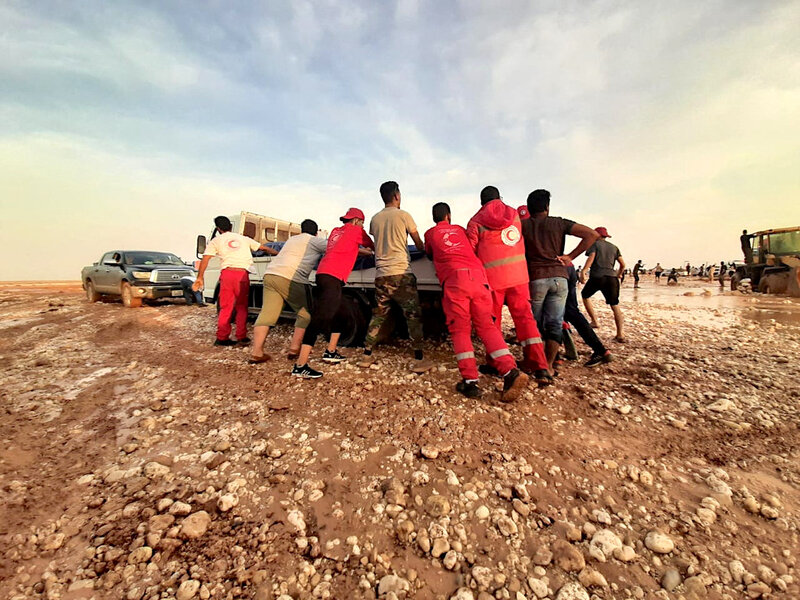A split Libya impelled toward unity
Loading...
Sudden tragedies like the catastrophic flooding in Libya this week uniquely reveal humanity’s ability to turn just as suddenly from apparently intractable conflict to unity and compassion.
For more than a decade, Libya has been riven by split government, warring factions, Islamist extremists, and foreign countries competing for resources and patronage. Now many of those same parties are joining in response to a disaster that has claimed at least 6,000 lives and displaced an estimated 20,000 others.
Assistance is pouring into the affected areas from towns across Libya as quickly as people can arrive. Airlifts of supplies and personnel are coming from countries and relief agencies across the Middle East. The United States and European Union have pledged additional support.
“We haven’t seen this type of unity for many years here in the country,” Al Jazeera’s Malik Traina reported. “We’re seeing also now volunteers and people giving whatever they can – water, food, medicine, whatever supplies they can.”
The rapid influx of relief aid and rescue support from friend and foe may prove salutary beyond meeting the immediate humanitarian needs. It illustrates a capacity for shared concerns at a time when Libya’s two rival and at-times warring governments are exploring proposals for stitching their country back together under a transitional unity government.
Abdul Hamid al-Dbeibeh, the leader of Libya’s internationally recognized government based in Tripoli in the west, declared on Tuesday that the country’s divisions “will not prevent us from helping you, and we will not fail to perform our duties toward you.” His government has earmarked millions of dollars in recovery funds and has begun airlifting emergency resources to the east, where the Mediterranean city of Derna and dozens of smaller flood-affected coastal towns fall under Libya’s rival administration.
His goodwill drew a healing reply. “We are one country,” said Abdulhadi Lhweej, foreign minister of the eastern government. “We welcome them.”
The disaster underscores the cost of Libya’s divided governance. When the weekend storm dropped as much as 9 1/2 inches of rain in under 24 hours, it exposed the country’s lack of emergency preparedness and the state of its neglected infrastructure. Two dams south of Derna failed. More than 20% of the city washed away in the wall of water. Residents report having had little or no warning.
Now the unity and compassion flowing into Derna from across Libya opens a new opportunity for national renewal. “Given that Libya has been divided into two rival administrations in the east and west” for almost a decade, wrote Sansom Milton, a professor at Qatar’s Doha Institute for Graduate Studies, in Middle East Eye today, “this unity in the face of disaster could later be capitalised ... to foster reconciliation.” That requires “work towards restoring public trust.”





